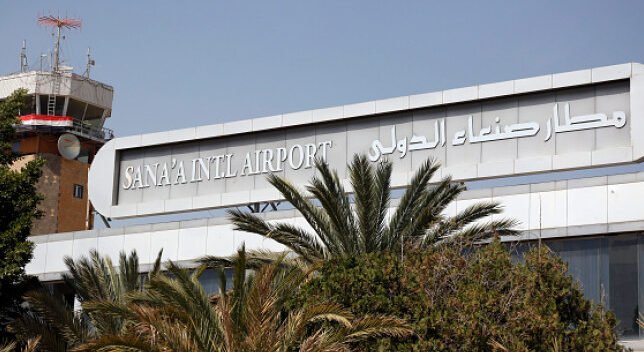Israeli strikes destroy Sanaa Airport, causing $500 million in damage; Houthis vow continued attacks
Yemen’s Houthi rebels are facing major losses after Israeli airstrikes hit Sanaa Airport on May 7, 2025, in retaliation for a recent Houthi missile drone attack. The strikes caused extensive damage, destroying terminal buildings and aircraft, with estimated losses reaching $500 million, according to airport director Khaled al-Shaief.
The strikes come as part of a two-day Israeli retaliation in response to Houthi missile and drone attacks, including an attack on Ben Gurion Airport in Israel. Israel’s military has been targeting Houthi-controlled infrastructure in Sanaa, which serves as the de facto capital of the group. The recent damage includes the destruction of six planes, including three Yemenia Airways jets, with the airport’s rehabilitation expected to take significant time. This blow is also expected to increase human suffering, particularly for those in need of medical treatment abroad.
The Israeli Air Force (IAF) had already carried out airstrikes on Houthi-held areas, including Hodeida port and a concrete factory. In retaliation, Houthi officials have vowed a continued assault on Israel, dismissing the US-mediated ceasefire agreement as a “humiliation” for Israel. The ceasefire, announced on May 6, aims to end Houthi attacks on ships in the Red Sea but does not address attacks on Israel. The Houthis have also threatened to continue missile and drone strikes targeting Israeli assets, as part of their ongoing regional conflict.
On Wednesday, an Israeli drone interception occurred when a Houthi-launched drone was fired at Israel. Despite no sirens being triggered and no casualties reported, the Israeli military confirmed that it intercepted the drone, which was reportedly launched from Yemen. This attack, though unsuccessful, underscores the growing threat posed by the Houthi militia, which has launched 27 ballistic missiles and numerous drone strikes on Israel since November 2023, following the Hamas massacre of October 7.
Houthi leaders have expressed anger at the US ceasefire deal, insisting it does not include Israel. A Houthi spokesman emphasised that their mission is tied to the Palestinian cause and vowed continued retaliation against Israeli ships until aid reaches Gaza. Mohammed Abdul-Salam, the Houthis’ chief negotiator, reiterated that the ceasefire “does not include Israel,” signalling that the Houthis will not back down from their aggressive stance.
While Israel has focused on countering Houthi operations, including targeted strikes on Houthi infrastructure, the broader geopolitical implications are far-reaching. The US-backed ceasefire is seen as a diplomatic success in mitigating Houthi aggression against maritime traffic, but it leaves open the door for further conflict between Israel and the Iran-backed rebel group.
The US’s sudden announcement of the ceasefire surprised Israel, with Israeli officials revealing that they were not consulted before the agreement was made public by former US President Trump. The move has caused tensions between the US and Israel, as Jerusalem remains focused on addressing regional threats posed by Iran and its proxies, including the Houthis.
In Yemen, the aftermath of the strikes only intensified the humanitarian crisis. Sanaa’s airport, a key lifeline for medical flights, is now severely damaged, and with Houthi forces vowing revenge, the situation in the region remains volatile.
